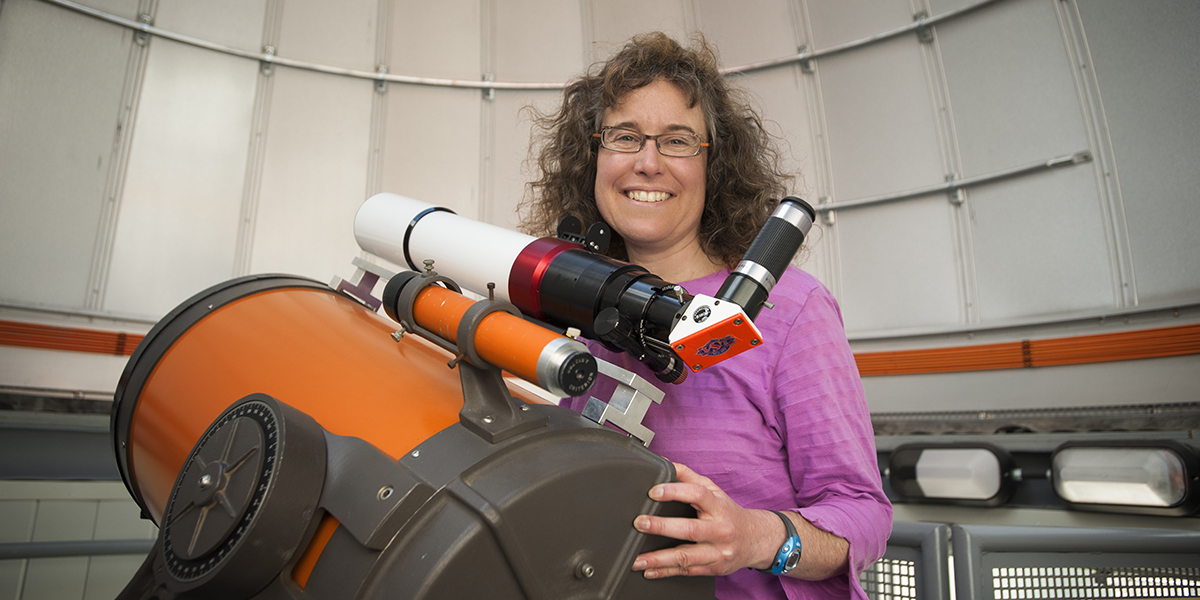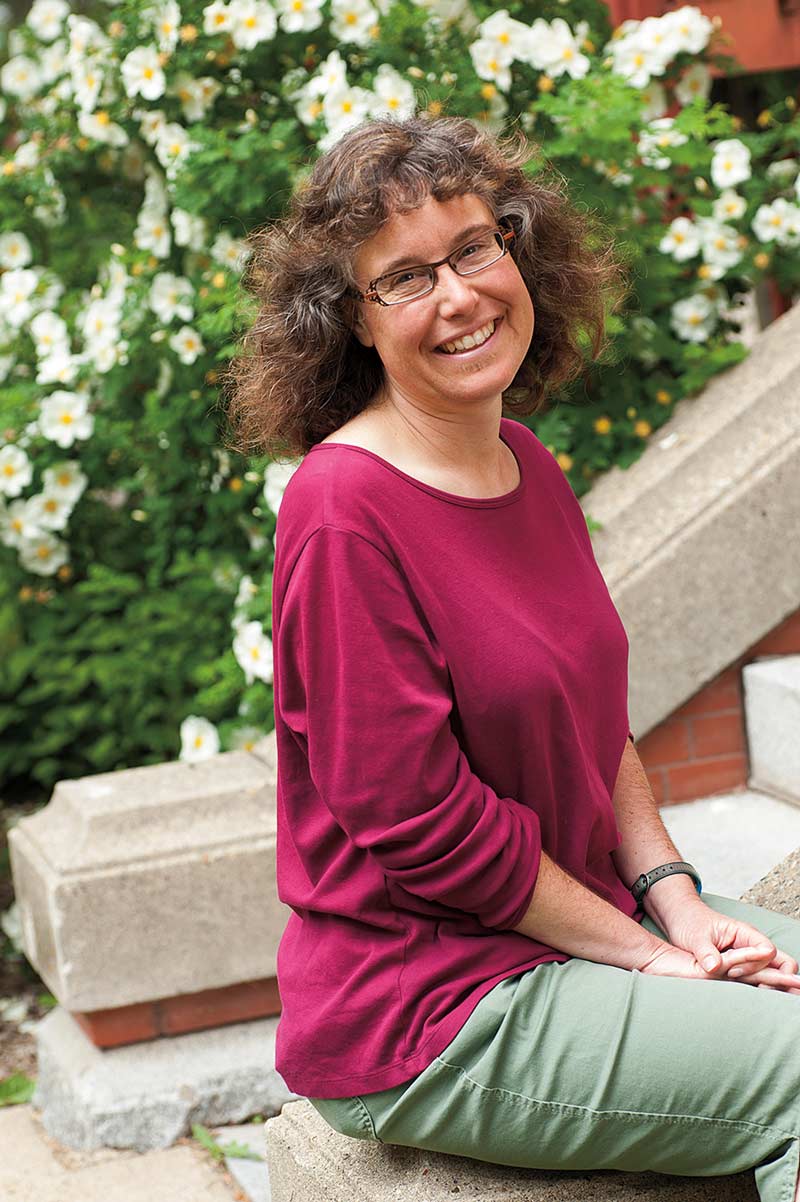
Associate Professor Sharon Morsink has led the outreach programs at the campus observatory since 2001. She also played a key role in obtaining funding for the solar system installation in the west atrium of CCIS.
Q: What do you teach?
A: Mainly astronomy and astrophysics courses and occasionally physics.
"Any place where people are curious and ask questions is a great learning space."
Q: Why should people learn about it?
A: The Universe is a strange and puzzling place. While there are lots of things that aren't known, there are plenty of things about the Universe that students can learn. What could be better than learning about how stars, galaxies and the Universe work?
Q: What are some of its "real-world" applications?
A: Astrophysics is the application of physics to describe astronomical objects. Some of the applications include understanding how the power of the stars is generated, how stars form and die, the structure of galaxies, and how the Universe expands. So this is definitely the real world!
 Q: What's the coolest thing about this subject area?
Q: What's the coolest thing about this subject area?
A: There are so many cool things, it's hard to choose. I guess my personal favourite are the neutron stars that can spin 600 times a second. Also, the gravitational radiation emitted when black holes collide is pretty cool too.
Q: What's your favourite kind of teaching and/or learning space, and why?
A: Any place where people are curious and ask questions is a great learning space. This can be a classroom, a conversation about the stars next to the telescope, or a chance question while riding in the elevator.
Q: What was your favourite learning experience as an undergrad, and how do you incorporate that experience into teaching your students?
A: My favourite classes were the ones where the professors asked questions of the class and encouraged us to think in the class room. I try to do this in my classes, but I'm not always successful. It's my goal to do more of this.
Q: What is one thing that people would be surprised to know about you?
A: I'm a fan of Doctor Who. My favourite character is Dr. River Song, who is my role model.